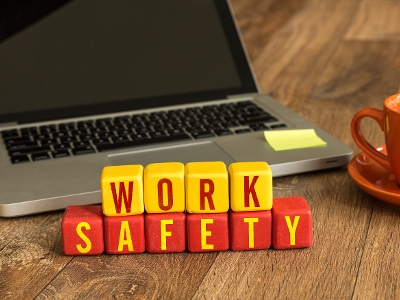Illness, stress and injury
6 March 2007
All education institutions have a legal responsibility for the health, welfare and safety of their staff.
This requires pre-emptive action, such as carrying out risk assessments, the training of first-aiders and publishing accident procedures.
When accidents happen, it may not always be easy to assess what steps you should take. We would normally advise that all accidents are reported, even where they may seem minor. Not only will this help your institution identify risk areas, but may be of benefit if complications arise.
One of your employer's responsibilities is to take preventative steps to guard against any long-term negative health implications of your job. This includes paying for regular eye tests for visual display unit users, ensuring workstations do not present posture or related health risks, and taking appropriate action when health & safety concerns are raised.
Your employer's responsibilities also extend beyond your physical environment. They should also ensure that workloads and working hours are such that you do not become at risk of stress or stress-related illness.
With increasing workloads, stress-related illness is becoming increasingly common.
UCU is campaigning to control workloads and has published research into the extent of stress in further and higher education.
Signs of stress - and this is by no means an exhaustive list - include: physical symptoms, such as headaches or rashes; emotional changes, such as over-reaction or sleep problems; and behavioural changes, such as substance abuse or high blood pressure.
If left unresolved, prolonged stress can be potentially life-threatening. If you feel you are at risk, please see your GP, and approach your branch/local association who will be able to support you if necessary in subsequent approaches to management.
See here for member factsheets on health and well-being.
If you fall ill during a holiday period, provided you inform your employer, you can take that holiday lost to sickness when you have recovered - see here for holiday rights information.
If you have a health & safety problem
Your local safety representative at department, site, branch/LA, college or university should be your first port of call for any health or safety query or problem. Elected by the union locally, they have the knowledge, are able to access training with paid leave, get paid facility time and have direct access to the union's officials and health and safety advice line. They are part of the local procedures agreed with your management, with statutory rights to deal with health and safety.
If you are not sure how to contact your local safety rep you can use our local contacts finder to contact your branch.
![]() Being made ill by work could give rise to a legal claim. As a UCU member you can find out if you have a viable claim by contacting us here.
Being made ill by work could give rise to a legal claim. As a UCU member you can find out if you have a viable claim by contacting us here.
Union safety representatives
A safety rep is fellow worker elected by other union members to look after the health and safety of the people they work with. Much of what they do benefits everyone in their department, both union and non-union employees. If you would like to help make your workplace a safer, healthier and more pleasant place to work, why not consider becoming a UCU safety rep?
UCU provides regular training and a national health and safety team to support our safety reps. Talking to an existing safety rep would be a good way to find out more about being a UCU safety rep, or you can contact your branch secretary.
- More about
 becoming a safety rep [160kb]
becoming a safety rep [160kb] - Chris Leaman, UCU, on being a safety rep
- PrintPrint this page
- Share


